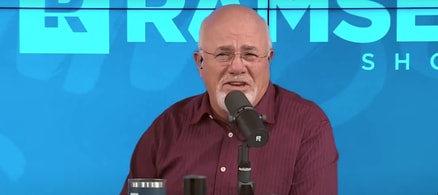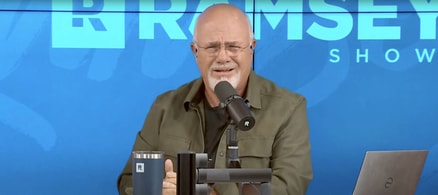Health insurance challenges
Quan, who won the Oscar for Best Supporting Actor at the 95th Academy Awards, was one of millions of Americans who lost their jobs — and their health insurance — during the pandemic.
He told Corden that filming for Everything Everywhere All at Once was shut down for eight months in 2021.
“In that entire time, I was at home trying to stay safe like everybody [else],” he said. “My agent was sending me all these auditions and I was sending in self tapes — and I could not get a single job.”
Quan said he was so nervous about losing his health insurance in the middle of a pandemic that he would have taken any acting job just to qualify for coverage. But his hunt for work was unsuccessful.
Facing a sea of rejections and doubting his acting ability, Quan called his Everything Everywhere All at Once producer to ask if he was any good in the movie — and he got the response: “You just wait!”
While Quan’s fortunes have turned around, the actor’s insurance woes during his time out of work highlight a challenge faced by millions of Americans who rely on job-based coverage: If you lose your job, your health insurance coverage will end.
Roughly 27.5 million people remain without health insurance in the U.S., according to the U.S. Department of Health and Human Services. As expected, uninsured adults — who don't have private coverage — are more likley to fall into medical debt, according to the Kaiser Family Foundation. Numerous studies also show that people without coverage are less likely to receive preventive care for major health conditions, which can ultimately lead to an even bigger health care bill.
It can be tough to deal with everything, everywhere, all at once — especially when your personal and financial health is involved. Here are three ways to manage unexpected health-care costs.
Read more: You could be the landlord of Walmart, Whole Foods and CVS (and collect fat grocery store-anchored income on a quarterly basis)
Stop overpaying for home insurance
Home insurance is an essential expense – one that can often be pricey. You can lower your monthly recurring expenses by finding a more economical alternative for home insurance.
SmartFinancial can help you do just that. SmartFinancial’s online marketplace of vetted home insurance providers allows you to quickly shop around for rates from the country’s top insurance companies, and ensure you’re paying the lowest price possible for your home insurance.
Explore better ratesConsider your coverage options
Medicare benefits, or “free” health care plans, don’t kick in until you reach 65.
If you haven’t yet reached that milestone, there's more than one way to get your hands on reliable, affordable health insurance. For instance, you can access coverage through COBRA, the Affordable Care Act subsidized marketplace, or a public plan like Medicaid. But many health care plans are costly and confusing, so it might be worth calling in some help.
The experts recommend comparing at least three different quotes before settling on the best plan for you. And while that might sound costly and time-consuming, some platforms these days can help you find a better deal in as little as three minutes.
It’s important to sign up for coverage as soon as you can so that you’re not left uninsured and paying for health care out of pocket.
Set up an HSA
A health savings account, or HSA, is a tax-advantaged account just for medical-related expenses. It’s meant to help people set aside money for routine medical costs and inevitable health care emergencies.
You can only set up an HSA if you’re insured under a high-deductible health plan (HDHP).
For 2023, the IRS defines an HDHP as any plan with a deductible of at least $1,500 for an individual or $3,000 for a family. An HDHP’s total yearly out-of-pocket expenses (including deductibles, copayments and coinsurance) can’t be more than $7,500 for an individual or $15,000 for a family.
Most employers who offer HDHPs will give their workers the opportunity to open an HSA. If your employer doesn't, you can set one up through a bank or an investment firm.
There are annual caps on HSA contributions, but any unused funds roll over from year to year, so you can save even more in the long run. This year, individuals can contribute up to $3,650 and families can add $7,300 to their accounts.
This money can be withdrawn tax-free to cover your deductible and copays, as well as costs that insurance often doesn’t pay for, like glasses, visits to a chiropractor, service animal care and breast pumps.
Stop overpaying for home insurance
Home insurance is an essential expense – one that can often be pricey. You can lower your monthly recurring expenses by finding a more economical alternative for home insurance.
SmartFinancial can help you do just that. SmartFinancial’s online marketplace of vetted home insurance providers allows you to quickly shop around for rates from the country’s top insurance companies, and ensure you’re paying the lowest price possible for your home insurance.
Explore better ratesManage your debts and build an emergency fund
Remember that no one is immune to unexpected health emergencies — and they can get very expensive very quickly.
Covering any unexpected cost is tricky when you’re already paying down debts. When you have a clean bill of health, consider taking steps to reduce your debt load.
For instance, you can try negotiating with your lender or consider a debt consolidation plan, which pools your various debts into one simplified loan, often with a lower interest rate.
An emergency fund can help you to weather financial storms, like extended hospital stays or illnesses where insurance or Medicare doesn't cover the full cost.
You can build this fund in an HSA or by using high-yield savings products like money market deposit accounts (MMDA), a certificate of deposit (CD) and savings accounts.
Sponsored
Unexpected vet bills don’t have to break the bank
Life with pets is unpredictable, but there are ways to prepare for the unexpected.
Embrace Pet Insurance offers coverage for treatment of accidents, illnesses, prescriptions drugs, emergency care and more.
Plus, their optional wellness plan covers things like routine vet trips, grooming and training costs, if you want to give your pet the all-star treatment while you protect your bank account.






